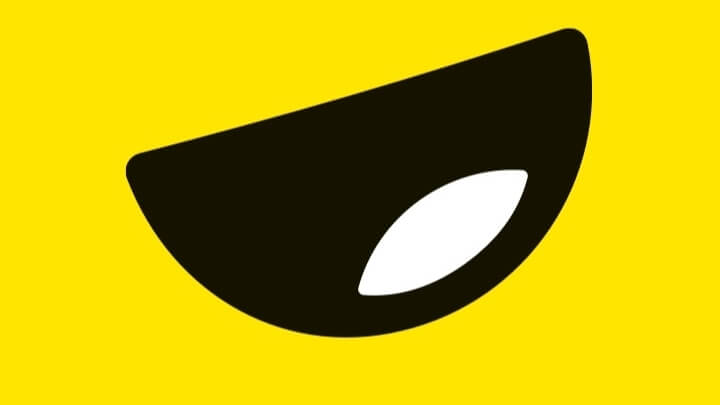Why Yubo & Co Are Beating Out The Competition
There is growing scrutiny of Facebook, Instagram, TikTok and other social media platforms

In what is a big step towards creating safer experiences for teens on social media, the United States recently introduced the Kids Online Safety Act (KOSA) in an attempt to remove harmful content and functions from platforms such as TikTok, Snap, YouTube, Instagram and Facebook.
The proposed legislation, introduced by Senator Richard Blumenthal (D-CT) and Senator Marsha Blackburn (R-TN), would require social media platforms to implement a range of privacy protecting safety features for users below age 16, including opt-outs of algorithmic recommendations, more parental controls and yearly independent user risk assessments.
The move comes in the wake of growing scrutiny of Facebook and other social media platforms, which critics argue have contributed to increased political polarization in recent years. However, the issue goes beyond political effects, as their use has also been linked to several adverse mental health impacts in users – especially the younger ones – only exacerbated by the pandemic-induced lockdowns and concomitant social isolation.
Social media’s reckoning
Big Tech’s harmful elements are well-documented indeed, with a growing focus being placed on millennials and Gen Z teenagers and how social media use is taking its toll on mental health. A 2016 study found that intense social media use is linked to “worse sleep quality and higher levels of anxiety and depression” – all of which have been confirmed time and again in multiple follow-up studies over the years. While a specific focus has been placed on Facebook and Twitter, intense users of TikTok displayed similar rates of depression and anxiety.
It’s evident that the top social media platforms have been severely lacking in protecting the well-being of their users. Illustrative of this point is Instagram, which recently had to admit to have no “exact number of how many under-18s are using Instagram”, betraying a lack of supervision just as the Facebook/Meta affiliate is rolling out new parental safety controls. These come as a reaction to the mounting controversy surrounding the app.
So far, the rolling out of new safety features across the most popular social media platforms has been a knee-jerk reaction to specific criticism and it’s unclear whether these quick fixes will deliver the intended results. It’s undeniable that mental health issues caused by Big Tech’s well-established social media platforms are a symptom of these apps’ inherent functioning. Making them safe to use for young minds would therefore mean undermining the very essence of their business model – hardly a great incentive when tens of billions of revenue dollars are on the line.
Yubo: rethinking social media
However, that things don’t have to be like that is aptly demonstrated by a new type of social media, geared specifically towards teenagers. New apps, such as Kik and Yubo, are characterized by the fact that they were created with the idea in mind that safety of their young users should be the crux, and inherent to their functioning, rather than an after-thought. Yubo, a streaming and friend-making app, stands out because it was designed with specific safety features unique in the social media sphere.
For example, one of its most prominent innovations is the real-time intervention function, which uses “a combination of algorithms and human moderators” to monitor activity on Yubo and intervene immediately when a breach of community guidelines is detected. The user in question first receives a warning message to explain how they crossed the line, adding a pedagogical element to the intervention that reflects a lessons-learned approach.
Yubo is also operating a team of safety specialists that are active 24/7 in order to ensure teens can use Yubo as a socially safe and supportive environment. This response team is part of the app’s Safety Hub, a special dedicated platform designed for parents, educators and the users themselves – an industry first – where any concerns can be reported and any safety questions be answered. Given these innovative safety measures, it’s no surprise that the app is not only counting almost 50 million users in 40 different countries, but has also raised close to $50 million in its latest funding round in late 2020.
Twilight of the old generation
It’s obvious what this means for the social media sphere: a rethink is long overdue at a time when the viability of the standard business model of old is evidently reaching its limits. Facebook, despite posting record revenues for 2021, is losing a million active users per day – possibly a reflection of growing disillusionment with the platform as it has moved away from the people-centered structure of the early years to a new model designed to maximize profits.
The new social media generation is thus setting itself apart from the established behemoths that rose to prominence during the early 2000s by explicitly shedding the profit-drive, placing the user at the core of the apps instead. That’s the reason why new apps like Yubo are regarded as a safe space, providing the people-focused, positive social environment that other platforms have come to be lacking.
Indeed, as users are getting ever more tired of being treated like a mere product to be exploited through a barrage of click-bait and other means, it might well be that social media will soon witness a major reformation. Until then, they are well advised to implement new safety features – voluntarily or through laws like KOSA – to ensure that the most vulnerable users are protected.
Thanks for signing up to Minutehack alerts.
Brilliant editorials heading your way soon.
Okay, Thanks!